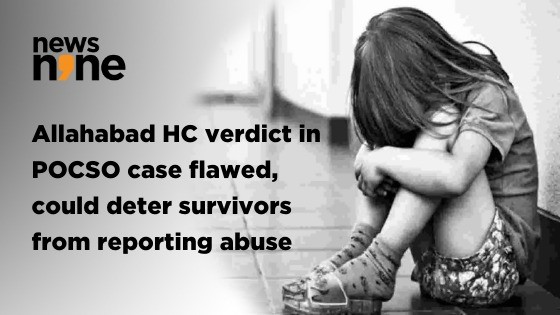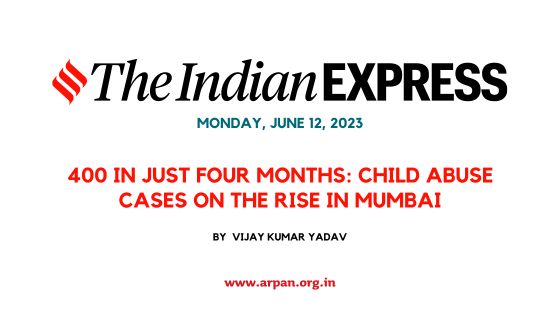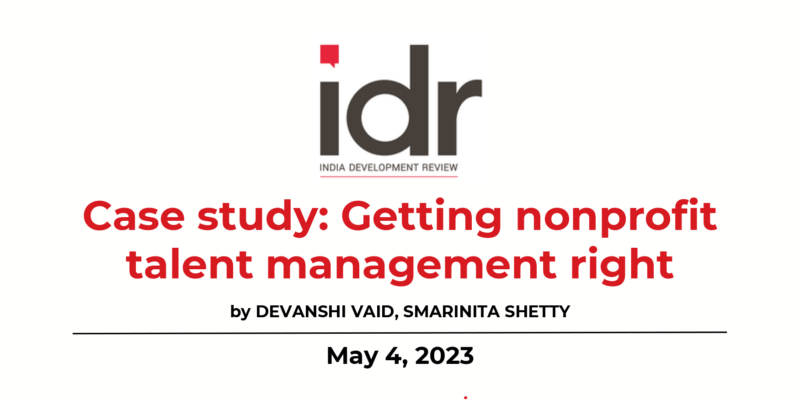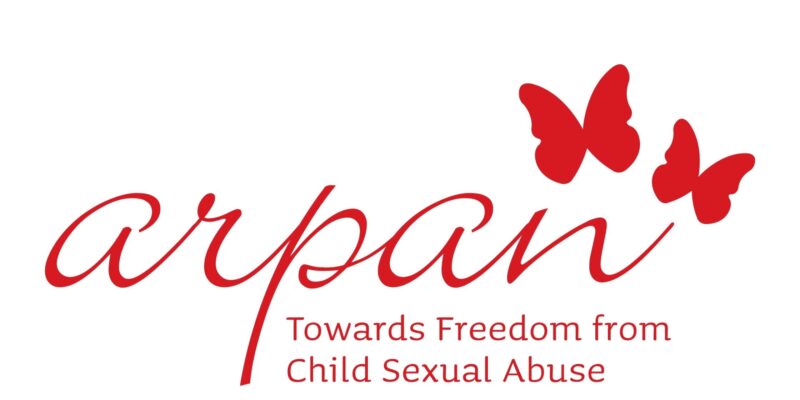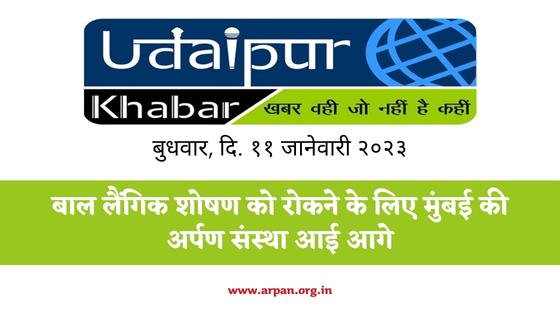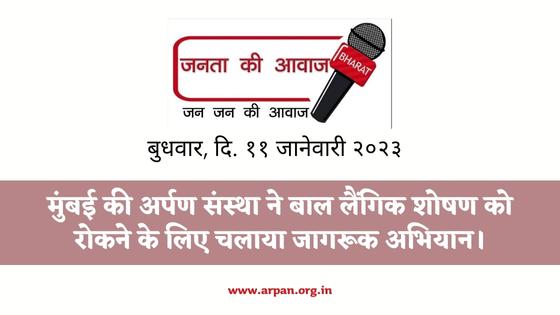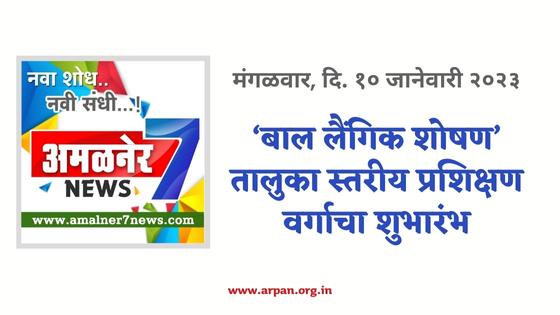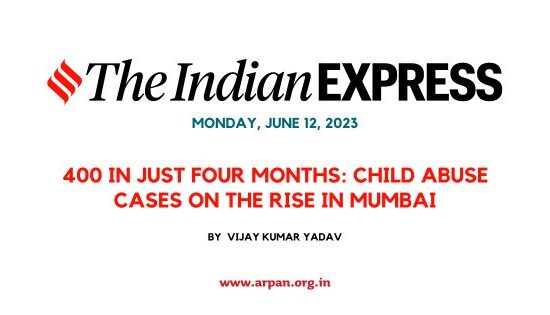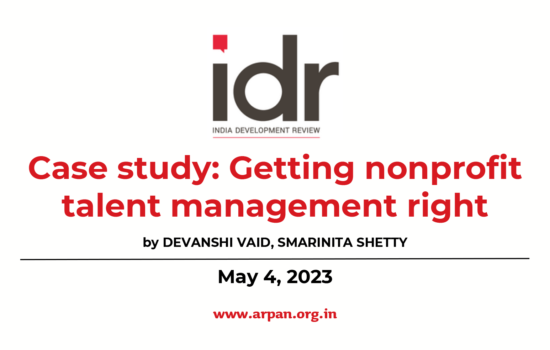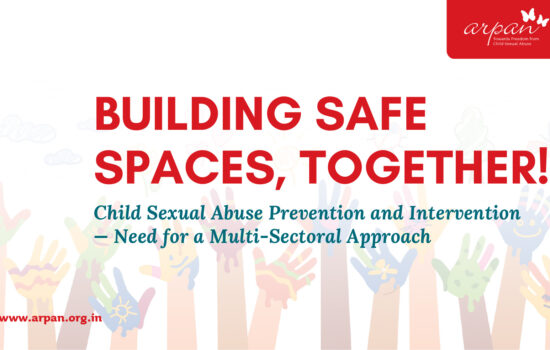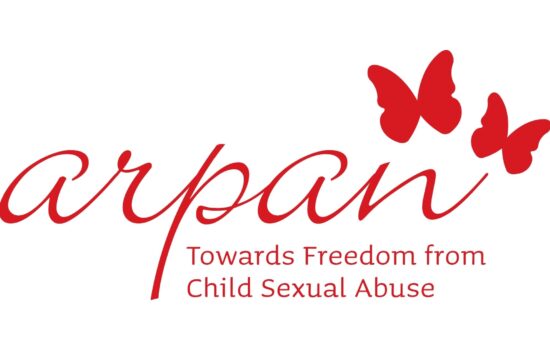You can read the article on News Nine
A sociologist by training, Dr Mukherjee notes that, in India, tremendous significance is given “to peno-vaginal sex/rape rather than oral sex which is not seen as heinous a crime.”
The Allahabad High Court is receiving flak from child rights activists, lawyers and survivors of sexual abuse because Justice Anil Kumar Ojha has reduced the jail term of Sonu Khushwaha, a man found guilty of coercing a 10-year-old boy into oral sex. The convict had appealed against the 10-year-long term. The appeal was admitted, and the term was reduced to seven years.
Justice Ojha said, “Putting penis into the mouth does not fall in the category of aggravated sexual assault or sexual assault. It comes into the category of penetrative sexual assault which is punishable under Section 4 of the POCSO Act. And penetrative sexual assault being lesser offence from aggravated penetrative sexual assault is legally permissible to convict the appellant therein.” He was referring to India’s Protection of Children from Sexual Offences (POCSO) Act.
This law, which was passed by the Indian Parliament in 2012 and amended in 2019, aims to be gender-neutral and also recognises forms of penetration other than penile-vaginal penetration.
According to Dr Manjeer Mukherjee, senior director at Arpan, a Mumbai-based NGO that has been working on the prevention of child sexual abuse for 15 years, the Allahabad High Court’s verdict contradicts the legislative intent of the POCSO Act and disregards law as well as facts. She says, “The POCSO Act clearly states that penetrative sexual assault below 12 years amounts to aggravated sexual abuse. It narrows, dilutes and trivializes the definition of aggravated sexual abuse. It sends out the message that interpretation of the law is subjective to the extent that it can contradict the very objective with which it was formulated.”
A sociologist by training, Dr Mukherjee notes that, in India, tremendous significance is given “to peno-vaginal sex/rape rather than oral sex which is not seen as heinous a crime.” She thinks that this perception needs to change in the minds of judges and magistrates because “any kind of penetration by a body part or object is heinous and will cause as much trauma to a child.”
Shruthi Ramakrishnan, Senior Legal Researcher at the Bangalore-based Enfold Proactive Health Trust – which works with child survivors of sexual abuse who are socio-economically disadvantaged, and need support and care – is disappointed that the court has “failed to appreciate the distinction between section 3/4 and section 5/6 of the POCSO Act.”
She says, “The introduction of aggravated offences in section 5/6 and section 9/10 in the POCSO Act was specifically intended to address more serious forms of sexual abuse against children including when committed against children with additional vulnerabilities due to age, disability, etc. or where a relationship of trust and authority has been exploited.”
Ramakrishnan adds, “In the present case it was clear that the child victim aged only 10 years satisfies the aggravating criterion framed under section 5(m) covering ‘whoever commits penetrative sexual assault on a child below 12 years.”Reducing the offence from ‘aggravated penetrative sexual assault’ to ‘penetrative sexual assault’ diminishes the severity of the offence.”
Debarati Halder, the author of the book Child Sexual Abuse and Protection Laws in India (2018), published by SAGE India, says, “The backlog of cases, or procedural delays from 2016 to 2021, are not the victim’s fault. He was 10 when he was sexually assaulted.”
Halder is a Professor at the Parul Institute of Law, Parul University, Vadodara. She emphasizes that “the tender age of the child” should have been a significant consideration for the court in keeping with the United Nations Convention on the Rights of the Child.
Prof Halder says, “When a female child is victimized, the criminal justice system looks at her differently. Boys are equally vulnerable. They must get equal protection. It also appears that the court has not carefully looked into the victim’s age in this case.”
She is worried that reducing the length of the sentence could end up encouraging offenders as they might think that “efficient and experienced defence lawyers can convince the court that age is not too important a factor.” She believes that all judges, regardless of their seniority level, must be sensitized about the psychological impact of sexual assault on children and the legal rights that they are entitled to.
Kalyani Sohoni, a Mumbai-based counselling psychologist who used to work with children in a school setup and now has a private practice, says, “The impact of child sexual abuse varies from case to case. In some cases, the trauma is suppressed so the child does not remember clearly the details of what happened to them. In other cases, memories come back from time to time. The psychological effects of child sexual abuse can manifest in the form of low self-esteem, lack of concentration in studies, anxiety around personal safety, and issues with respect to bodily autonomy and sexual intimacy as the child grows up and becomes an adult.”
She points out that children who have been sexually abused at a very young age may not have the vocabulary or understanding to process what is happening to them. She adds, “They may not have learnt about boundaries or consent, so when they become aware of what has happened, they could carry a sense of guilt and even blame themselves. Sometimes, abusers threaten to harm the child’s parents. The child wants to protect them and does not speak up about abuse.”
Delhi-based writer Saurabh Sharma, who is a survivor of child sexual abuse, views the Allahabad High Court verdict as a clear reflection of Indian society, “which condones sexual violence and assures perpetrators that they will face no serious consequences.” According to him, perpetrators feel emboldened when some forms of violence are not seen as violent enough in communities and courtrooms, especially when the victim is a boy rather than a girl.
Sharma adds, “It is tragic that we have become so numb to sexual assault that we think only the rarest of rare cases deserve punishment. The message being sent out to survivors is that their life is not considered worthy of protection by the state and that they must carry the burden to prove themselves deserving of justice. It is the survivor who is being punished here.” He believes that the verdict is likely to deter survivors from coming forward and reporting abuse.
What led the bench to interpret the POCSO Act in the manner it has seemed unclear to Ramakrishnan from the text of the verdict. She says, “No gender-based bias or insensitivity to child sexual abuse is deducible from the judgment. It is very much possible that this is a consequence of an oversight.” Dr Mukherjee notes that sexual abuse of boys is under-reported “as society looks at boys and men as either abusers or protectors, rarely as victims.”
Sharma mentions that the training around being vigilant “about good touch versus bad touch” is often withheld from boys because parents and teachers “live under the false impression that boys are not vulnerable, and therefore not in need of support.” He points out that this early memory of assault can have a devastating impact on how male survivors “navigate sexual intimacy in adulthood” because their first sexual experience was one of violence and trauma.
Tara Kaushal, author of the book Why Men Rape: An Indian Undercover Investigation (2020), published by HarperCollins India, says, “The Allahabad High Court verdict is flawed. Non-consensual oral sex is rape. There is no ambiguity about it. Diminishing the impact of forced oral sex on people who are at the receiving end of that violence is a grave disservice.”
Kaushal wrote her book after interviewing nine men across India who have raped. Her research methodology involved observing them, their families and friends in their home environments. She wanted to study the various factors that shaped their inclination to rape. She writes about cisgender men who rape (primarily) cisgender women but acknowledges in her introduction that “genders other than female are raped and genders other than male rape.”
She says, “Patriarchal conditioning is so deep-rooted that men are regarded as sexual scorekeepers and women as sexual gatekeepers. Traditional sexual scripts perpetuate the idea that men want sex; women want love and marriage. Due to this belief system, it is assumed that boys – like men – always say yes to sex. The possibility that someone could overpower them against their will is not taken seriously. Their safety and dignity are compromised.”
Uma Subramanian, co-founder of Mumbai-based RATI Foundation’s Aarambh India Initiative that focuses on child protection and issues related to child sexual abuse and exploitation, says, “My biggest disappointment with the verdict is that it makes a mockery of the idea that the POCSO Act adopts a zero-tolerance approach to sexual offences. The victim was 10-years-old when the case was registered in 2016. He is a teenager now. Imagine all the trauma that he must have gone through!”
Siddharth P, co-founder of the Aarambh India Initiative, says, “In popular discourse, the POCSO Act is viewed as a draconian law, so there is a push for it to be read liberally. On the ground, an aspect of this plays out as a search for the ideal victim, who must look young and innocent and vulnerable. The criminal justice system’s perception of the victim’s age – which may have nothing to do with the victim’s actual age – is another factor. Gender can be a factor but religion and caste too play a key role.”
According to him, the loss of dignity and the shame that the victim has to confront are overlooked when courtrooms judge the extent of dehumanisation without considering the victim’s point of view. He is of the opinion that Indian society is now more open to recognising that boys do get sexually assaulted; however, parents tend to assume that “these things happen in other homes, not their own.”
Ramakrishnan thinks that the verdict is a wake-up call for state judicial academies to prioritise training and sensitisation of judges in child-specific legislations, the special procedures framed under the POCSO Act, and child-friendly trials. Dr Mukherjee thinks that judges need to be educated about how “childhood trauma from sexual abuse can significantly impact the life of the child at the physiological, psychological and social levels and impact sexual behavioral patterns in adulthood, if not healed.”
Subramanian believes that all judges must go through mandatory training to understand the lived experiences of victims – not just the technicalities of law – so that they put empathy front and centre. She says, “In our training programmes, adults are asked to close their eyes and recall their first sexual encounter. They can share it with the group if they feel comfortable. When adults struggle to speak about consensual and pleasurable sex, how do they expect children to narrate incidents of sexual abuse?”
Source : News Nine

